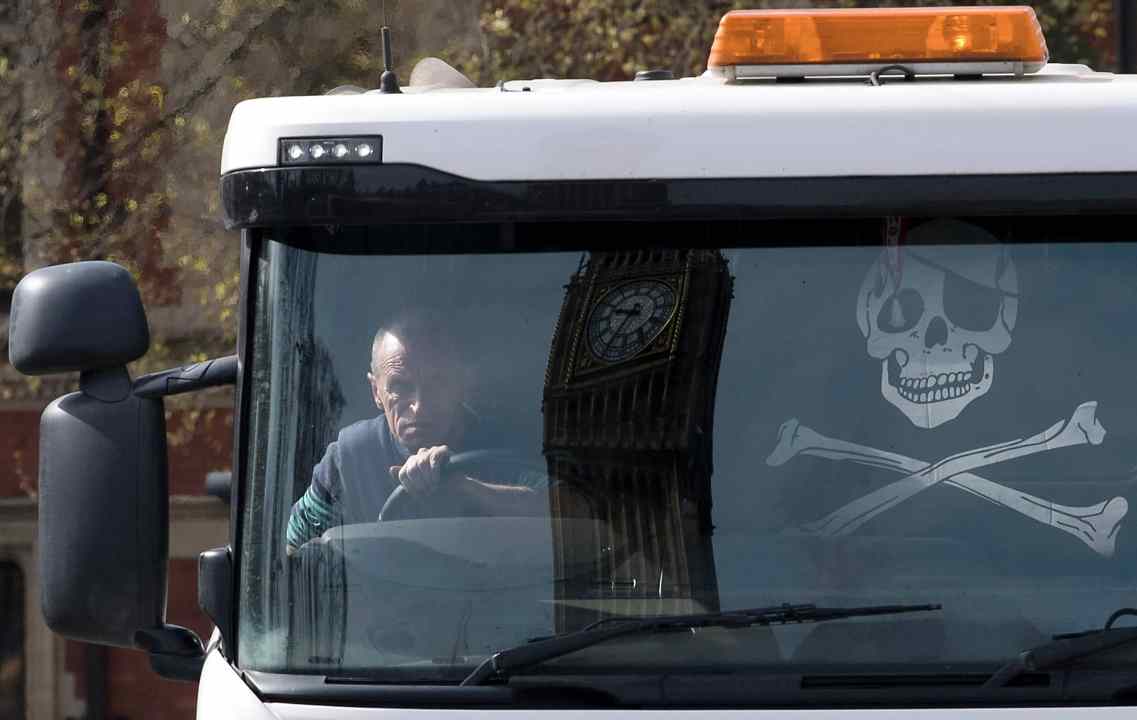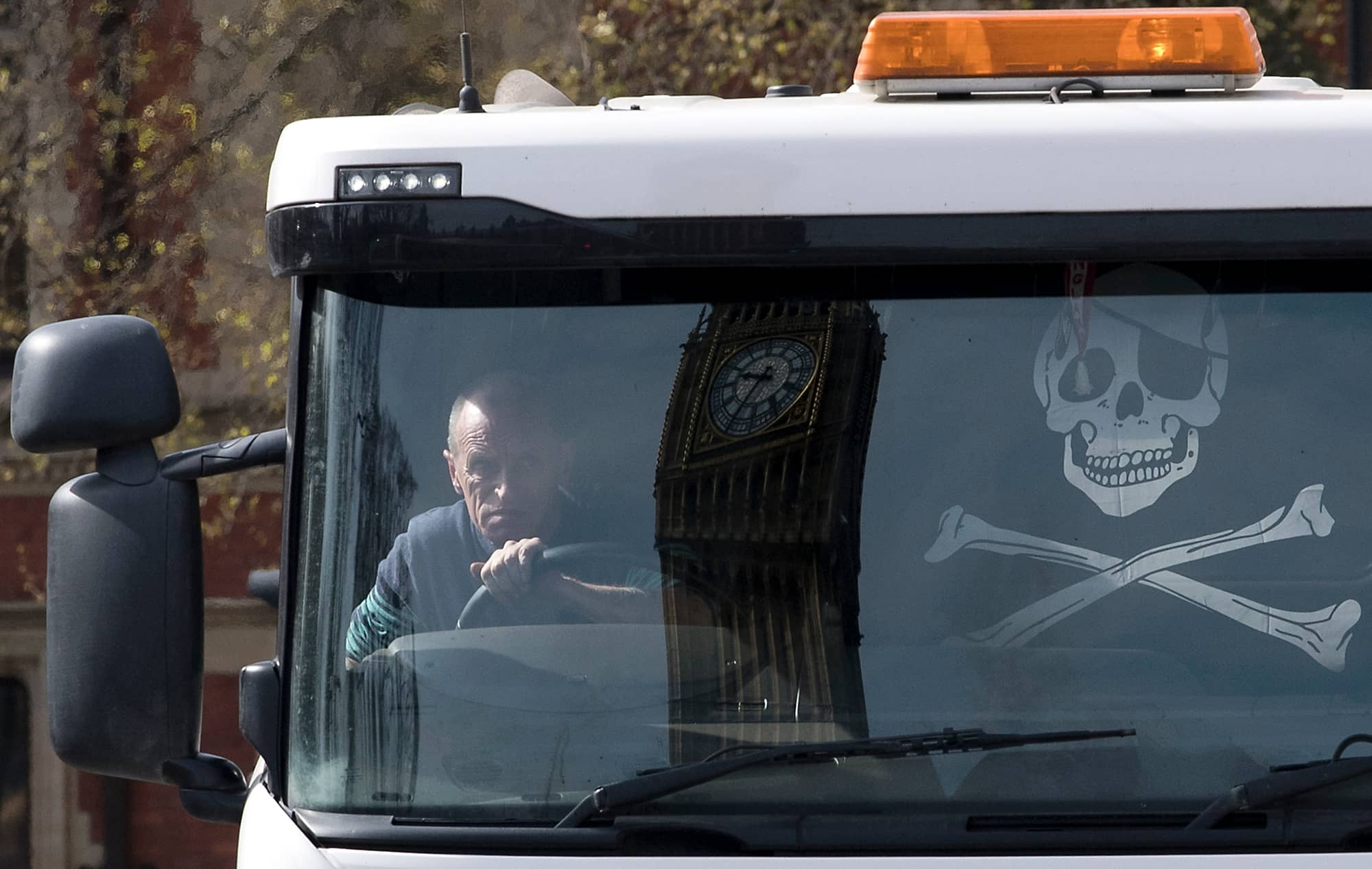I became a trucker by default. It was the 1980s and I was working three jobs just to pay the mortgage and keep my family going. I was a milkman, a taxi driver and a barman and I was tired and bored. We were living in a town with a ferry link to France and so at the evenings in the pub I got to know the truckers who drove back and forward from the Continent. I’d listen to their stories and think what fun it sounded. I saved up, passed my test, bought an old DAF tractor unit, hired a trailer and began my life on the road.
Back then, it was just as weird and fun as I imagined it would be. On my very first trip, I met a one-legged prostitute who worked the service area at Auxerre and a Scottish driver who introduced me to the Congolese cocktail lumumba (brandy and chocolate milk). I reloaded with oranges from Valencia and was promised a healthy bonus for delivery within 36 hours, which I easily accomplished. I got paid and started again. I loved every minute.
I’ve known HGV drivers who were gassed like badgers in the night, and thrown into a ditch by criminals who steal trucks to order
Progressively, though, the sense of adventure left the job. The days of Smokey and the Bandit, CB pseudonyms, wallets on chains, camaraderie, red diesel and mirror sunglasses gave way to a joyless efficiency. What had been a band of happy, freedom-loving truckers became a giant web of just-in-time delivery vehicles circulating throughout Europe, keeping the factories, assembly plants and food stores stocked.
If you’re looking to explain the shortage of HGV drivers in this country, and across many others in Europe, one significant reason is simply that the job is both less lucrative and less fun. As well as the pay being terrible, there’s no longer any sense of comradeship; of getting one over on the authorities. Everything is computerised. A driver’s hours are rigorously checked and it’s common for us to be fined and dismissed for any contravention of the rules.
What is there now to entice a young person into the trucking industry? It was once a way of being free and seeing the world. But for all the talk of serious salaries and golden hellos from the desperate supermarket chains, the reality is a salary of £12-15 an hour and a life spent sitting in endless traffic jams, eating junk food and only seeing and interacting with people who dislike you. You spend your leisure time in motorway service areas, knowing that you’re in a job with no promotional prospects. You work on bank holidays and at weekends, all the while spied on via satnav and in-cab cameras, by some mean-minded adolescent back in the office who couldn’t park an HGV if their life depended on it.
Brits like me began to abandon trucking a long time ago. But when we belonged to the EU, the shortfall in drivers was concealed by the readily available east European workforce. Poles, Romanians, Bulgarians, Slovaks and Czechs all appeared just as they were needed, willing to take on zero-hours contracts and happy with the minimum wage, which to them was a huge hike relative to what they were able to make back home.
Then the European migrants left because of Covid and Brexit. Armed with their experience and qualifications gained in the UK, they’ve been able to find better jobs at home, and so no doubt they’ll stay there.
I’m not sure what I’d suggest to entice more young British people to become truckers, but I will say that the latest plans are insane.
It has recently been announced that anyone with a car licence can train and test directly for a Class 1 ticket without going up through the ranks: small lorry, big lorry, 44-ton articulated truck. This can only end in carnage. If you’re driving a big-wheeler you have to think ahead all the time. The concentration needed is huge and the potential hazards are numerous. Even when parked up, you must be on your guard for fear your trailer is slashed open, the load stolen and the diesel siphoned out. I’ve known HGV drivers who were gassed like badgers in the night, and thrown into a ditch by criminals who steal trucks to order. Enticing the inexperienced into the trucking industry is a very bad idea.







Comments